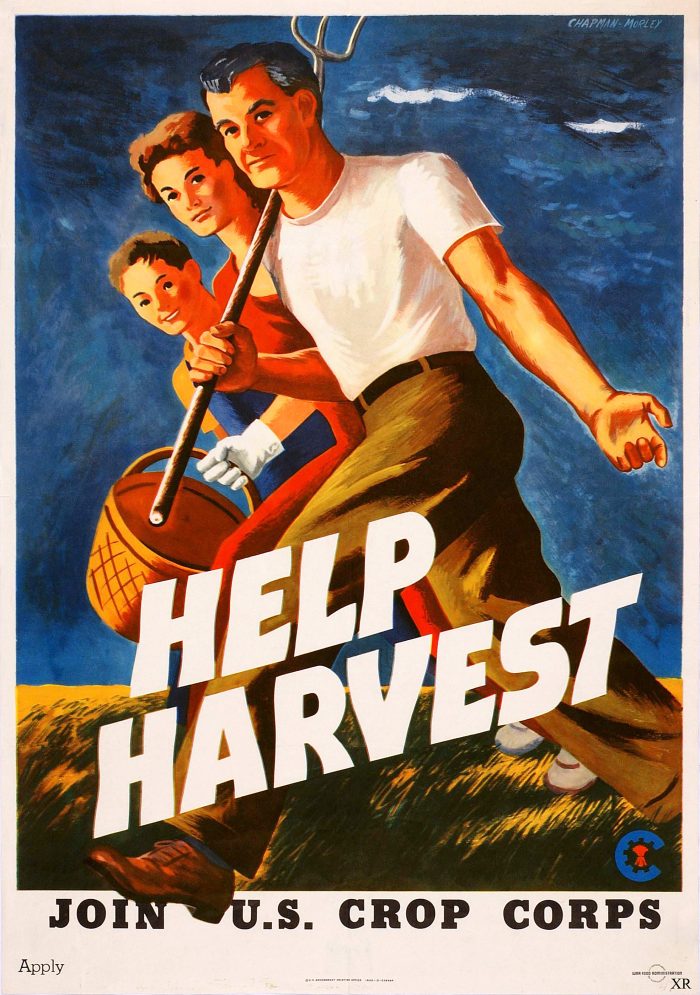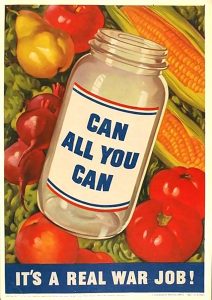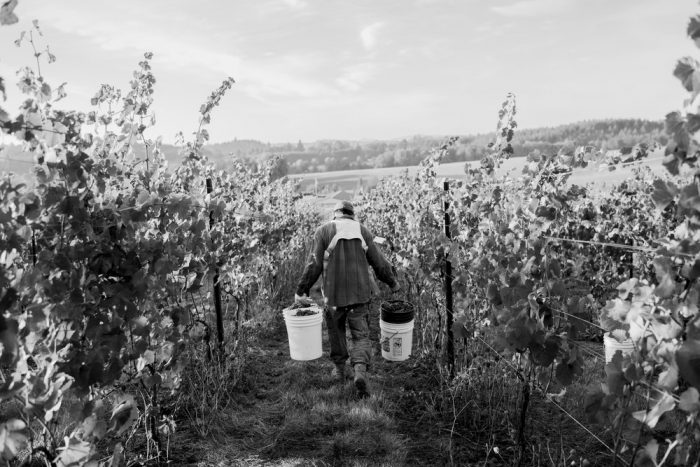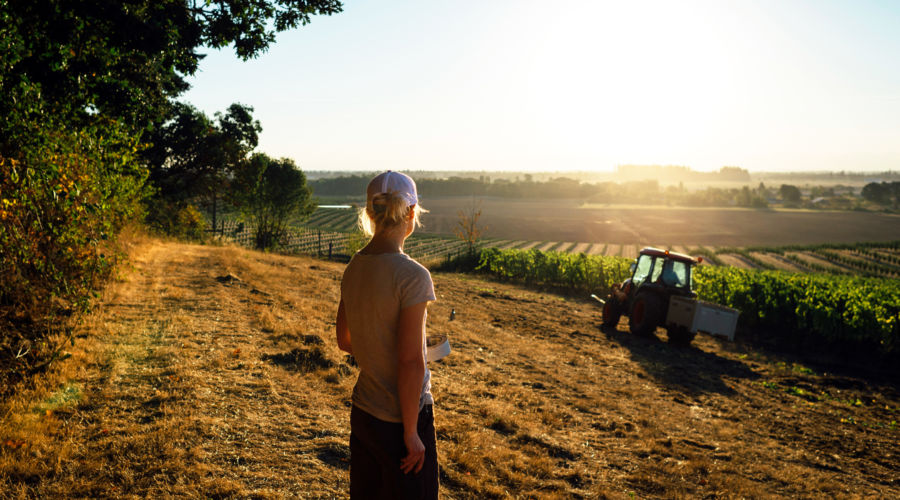If current events are an indicator of anything, it is that America’s “Just in Time” supply chain is inflexible and vulnerable to system shock. Store shelves, once packed full of commodities, sit empty. Restaurants already battered by COVID lock downs, now have to piece together their menus with whatever produce is available. Needless to say, communities need robust local agriculture now more than ever!
However it takes two to tango and this situation is no different. Building resilient communities requires more than farmers growing a crop – it takes the entire community to make sure that crop gets to market and is preserved for all to enjoy. The conservation efforts of WWII are a great example of how communities can build resilience around agriculture. It was commonplace during WWII to see massive volunteer efforts to harvest farms when labor was at a premium, and then take that crop and get it in to cans and jars. In a sense it took a village to raise a crop.
We need to pivot to that level of effort from our farms and communities now!
How can someone get involved who isn’t a farmer? It’s not as hard as it sounds! Here are some basic first steps how you can help build a resilient community around agriculture:
Join a local farm’s community supported agriculture (CSA)
A CSA is when a farmer offers a certain number of “shares” of their yield directly to the public. Typically the share consists of a box of vegetables, but other farm products may be included. Customers then purchase a share and in return receive a box of seasonal produce on a regular basis (weekly, bi-weekly, monthly, etc). Find a CSA near you through the USDA here- Learn how to can and preserve produce
Canning and preserving food is how the community can reinforce the supply chain. In essence when someone preserves their own food they become their own grocery. This is particular useful for anyone who lives in remote areas or when supply chains have broken down. Learn more about preserving your own food here - Plant your own “Victory Garden”
Your victory garden counts more now than ever! Big or small it doesn’t matter – your garden does more than just feed your family, it also helps nature by increasing habitat for pollinators and birds on top of boosting soil microbiology and sequestering carbon. Don’t have a yard? then consider pollinator friendly potted plants on a balcony or porch. Intermix some strawberries and make some jam! - Become a member at a Community Garden
If you don’t have a suitable yard for a garden, but still want to grow a crop then consider joining a community garden! Most cities and suburbs have at least a handful of community gardens that you can join and grow the crop of your choice. A simple query on your favorite search engine will yield a variety of different options!
If you appreciate our mission to train and equip veterans to become farmers then please consider making a tax deductible contribution

 Join a local farm’s community supported agriculture (CSA)
Join a local farm’s community supported agriculture (CSA)
